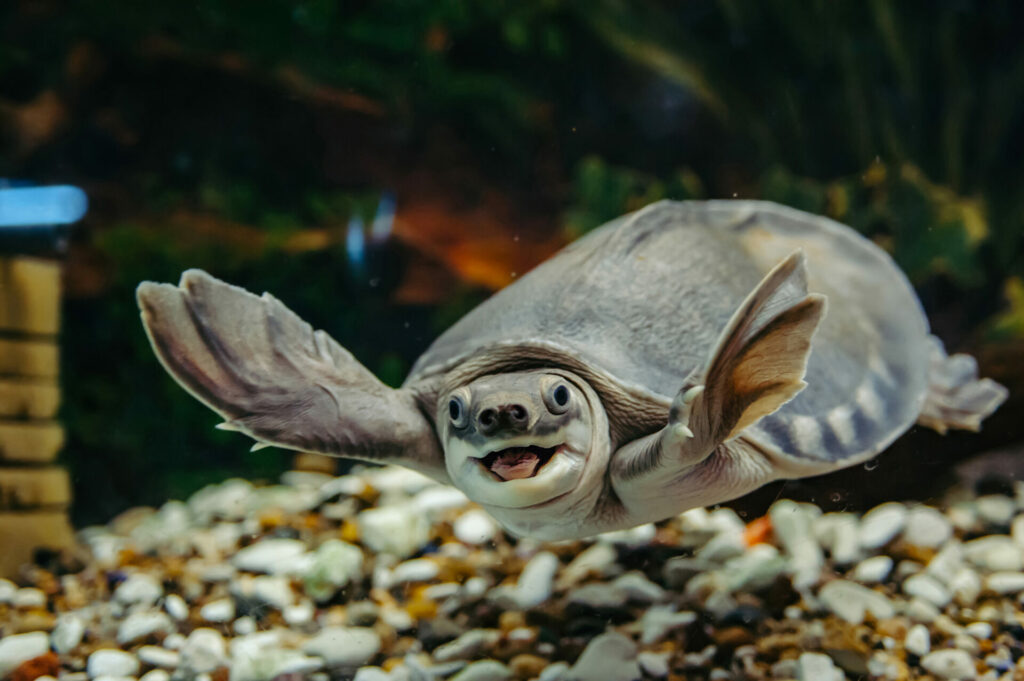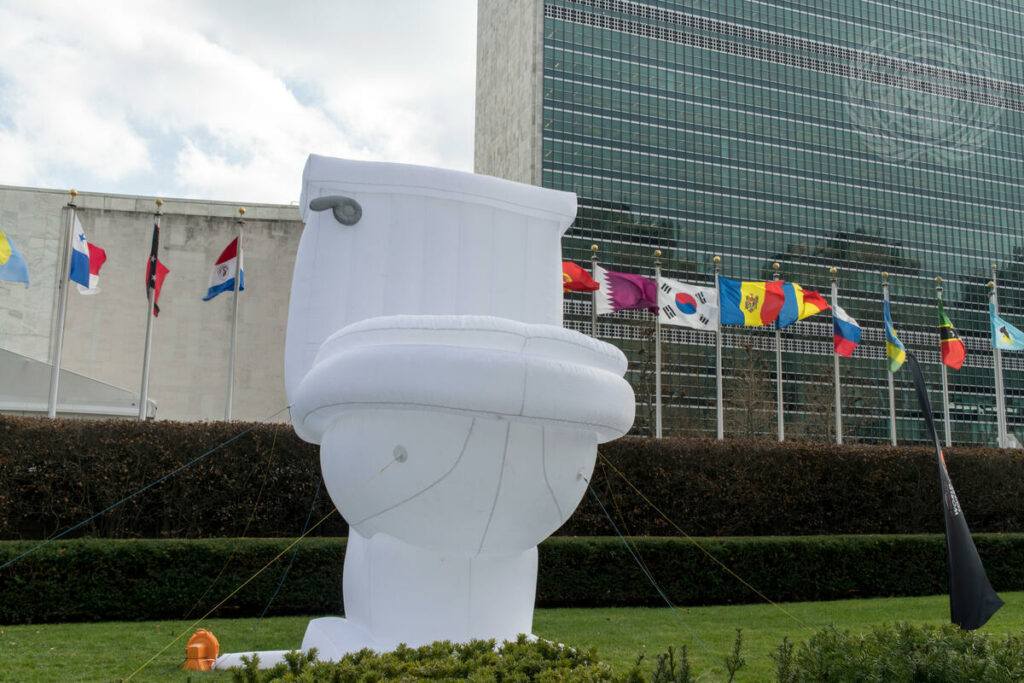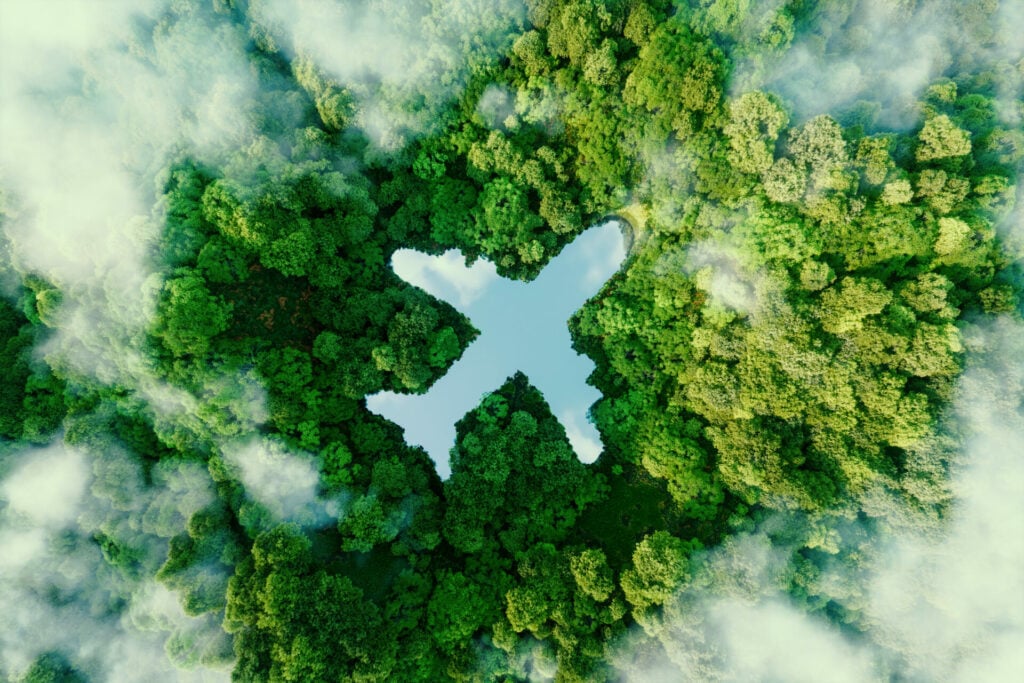Animal rights activists have called for an end to horse races over jumps after three competing animals died during this year’s Grand National held at Aintree in the UK.
A horse named Hill Sixteen died from a broken neck after falling at the first fence of the delayed 2023 Grand National, the third horse fatality in as many days.
The 10-year-old, ridden by Ryan Mania, suffered an ‘unrecoverable injury’, according to the Jockey Club who later confirmed he died from his injuries.
It followed the deaths of Dark Raven and Envoye Special earlier during the three day event.
Dark Raven, a six-year-old horse, was put down after a fall in the Turners Mersey Novices’ Hurdle, with jockey Paul Townend in the saddle and Envoye Special died over the Grand National fences in the Foxhunters’ Chase.
Two other horses in the race – Recite A Prayer and Cape Gentleman – were treated on course and taken away for further assessment. They look set to survive, but will be retired from racing.
Animal Aid, a British animal rights organisation campaigning to ban the race altogether, says action must be taken to prevent the ‘brutal horrors’ at Aintree Racecourse from happening again.

Dene Stansall, the campaign group’s horse racing consultant, said: ‘Innocent racehorses’ lives (are) taken from them in the name of entertainment and gambling.’
An estimated 500 million viewers around the world in 140 countries watched the event with bets of around £300 million placed by punters.
Event Arrests
A total of 118 arrests were made after protesters – demonstrating against the staging of the event – delayed the start of the 175th running of the famous steeplechase after getting onto the racecourse.
Animal Rising, which orchestrated the protests, said the actions aimed to prevent the death of horses.

‘We want to offer our deepest condolences to anyone connected to Hill Sixteen or who has been impacted by their death,’ the group said. ‘Horse deaths and injuries are an unavoidable consequence of the way we use animals for sport.
‘The only way to prevent more harm from coming to these beautiful creatures is by completely re-evaluating our connection to them.’
However Hill Sixteen’s trainer Sandy Thomson said the horse became ‘hyper’ because of the activity around the protests.
‘He’s jumped round here (Aintree) twice and never had a bother. I don’t know when he last fell,’ he said.
‘Even those who make it off the track alive are likely to suffer. Thousands of horses – including “spent” thoroughbreds and those who don’t “make the grade” – are discarded like used betting slips every year.’
PETA
Animal Rising said they would ‘welcome dialogue’ with Thomson and owner Jimmy Fyffe about ‘how to move forwards together and really transform our relationship to horses and, indeed, to all animals and nature’.
PETA UK, described the Grand National race as ‘one of the longest and most hazardous in the world’ and is urging the public to put pressure on the event’s sponsors so they withdraw financial support.
It said high fences such as the Chair, Becher’s Brook and the Canal Turn cause ‘horrific and often fatal injuries’ almost every year.

‘Every time horses are forced to jump over these excessively high obstacles, it puts tremendous pressure on their slender front legs and they risk broken legs, necks and backs,’ the group added.
‘Even those who make it off the track alive are likely to suffer. Thousands of horses – including “spent” thoroughbreds and those who don’t “make the grade” – are discarded like used betting slips every year.’
Grand National Investigation
In total 62 horses have died at the Aintree Festival since 2000 – with 16 killed in the Grand National itself. There have been five deaths from 395 runners in the 10 Grand Nationals raced since safety changes were introduced in 2012.
The British Horseracing Association (HRA) says it will investigate what caused the deaths. CEO Julie Harrington said: ‘The BHA and Aintree racecourse will now analyse the races in painstaking detail, as is the case every year, to build on our existing data and help us understand what caused these incidents.’
She said improvements in welfare standards has seen the death rate in the sport reduced by a third in 20 years to 0.2 per cent of runners.
Animal charity the RSPCA called on Britain’s horse racing governing body to ‘review the circumstances of each of the sad deaths at Aintree, so that we never again exit a ‘festival of racing’ with three dead horses’.
Four horses died at the Aintree meeting last year, including two injured in the Grand National, which is the climax of the annual race meeting.














